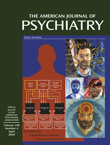Views of Potential Subjects Toward Proposed Regulations for Clinical Research With Adults Unable to Consent
Abstract
OBJECTIVE: The authors’ goal was to assess healthy individuals’ attitudes toward five of the most prominent proposed safeguards regarding the consent process for research with adults unable to consent. METHOD: Telephone interviews were conducted with 246 individuals with a family history of Alzheimer’s disease who had participated in clinical research. RESULTS: The majority of respondents said that they were willing to participate in research if they lost the ability to consent. Few completed a research advance directive. Many had discussed their preferences with their families, and the majority would allow their families to make research decisions for them. CONCLUSIONS: Enrolling individuals who are unable to consent in research that offers no potential for medical benefit is consistent with the preferences of at least some individuals. This suggests that such research should not be prohibited, provided there is sufficient evidence that it is consistent with the preferences of individual subjects. Requiring that such evidence be provided in a formal research advance directive may be unnecessarily restrictive. More research is needed to assess whether the findings in this group of subjects generalize to other groups.



